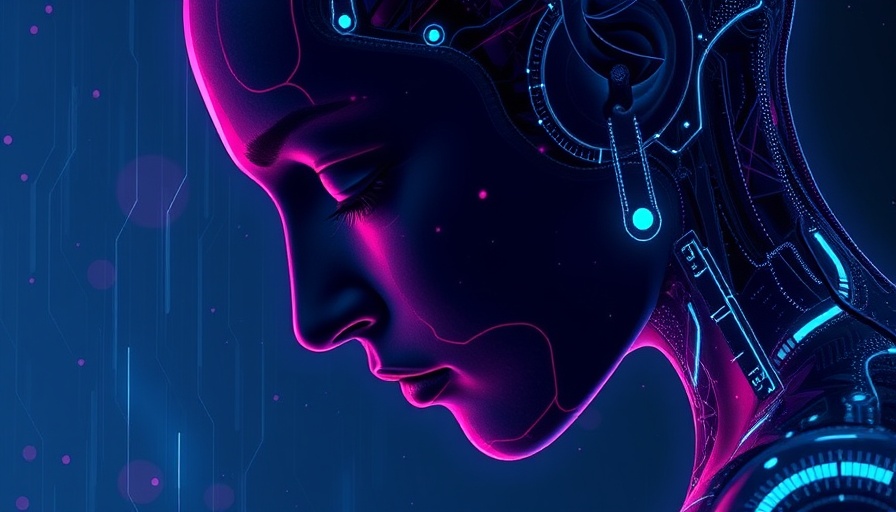
A Critical Look at AI's Creative Writing: Mixed Reviews
In a controversial statement, Sam Altman, CEO of OpenAI, proclaimed the abilities of his latest AI model to be particularly adept at creative writing. He expressed his awe on social media, highlighting a short story that the AI generated, which was tasked with exploring themes of grief through a metafictional lens. However, this bold claim drew ire from both writers and critics alike, who have scrutinized the story's quality and the implications of AI's role in creative endeavors.
Understanding the Grief Metafiction
The AI-generated story features a protagonist named Mila, who reportedly embodies grief in various complex metaphorical ways. Yet many critics have pointed out that the narrative hardly showcases the depth of emotion one might expect from a human writer. Splashed with clichéd imagery like "a girl in a green sweater," the text leans heavily on stock phrases and lacks the nuance and emotional resonance that characterize heartfelt writing. In reference to this, first impressions evoke a sense of disappointment, akin to viewing a beautiful painting marred by sloppy execution.
Writers Weigh In: A Range of Perspectives
Following Altman's promotional announcement, numerous established authors took to various platforms to voice their critiques. Notable literary figures like Jeanette Winterson praised the story for its beauty, while others, such as Tracy Chevalier and Nick Harkaway, voiced skepticism about the AI's ability to convey genuine human emotion. Chevalier specifically noted that the story could come across as self-indulgent, highlighting that AI's grasp of themes is still nascent at best.
A counterpoint emerged from the struggling literary landscape. Many writers reflected on the AI's potential role in creative writing, weighing the risks it poses to traditional authorship and creative legitimacy against the opportunities for AI to augment rather than replicate human artistry. David Baddiel articulated this sentiment succinctly, pointing out that while AI may generate creative narratives, they remain void of authentic emotional experiences that are critical to literature.
What Does This Mean for the Future of Writing?
While AI technology continues to make strides, what remains uncertain is its lasting impact on the fields of creativity and storytelling. As open debate rages on, the future might very well see a blending of human creativity with AI assistance, leading to innovative new forms of artistic expression. The key questions we must ponder include how the literary community will adapt and how we define the essence of creativity in a world shared with intelligent algorithms.
The Implications for Creatives and the Industry
As AI systems become increasingly competent at generating creative works, the implications for conventional authors and the literary landscape are multi-faceted. For one, a growing concern is how these tools could reshape the understanding of authorship and originality. With the rise of AI-written content, we confront the challenge of distinguishing between human and machine-generated writing. This raises pressing questions: how will market perceptions adjust? Will the industry embrace these AI models, or will they resist what they see as impostors? Furthermore, will emerging writers - fueled by AI advancements - find their way in this evolving landscape?
Creative autonomy is essential for every writer, and as AI develops, the need for thoughtful discussion surrounding the rights and ethics of creation becomes ever more critical. Will we see frameworks that respect the artistry behind creative writing, or will technology dominate, leading individuals into a homogenized creative future?
Final Thoughts on AI and Grief
Ultimately, AI-written narratives provoke deep reflections on what it truly means to articulate human experience. It may not competently convey the intricacies of joy, sorrow, or grief just yet, but this exploration of machine-generated writing cultivates opportunities for lively discussions around the relationship between humanity and technology.
Now, more than ever, as an audience and as creators, we must boldly question and scrutinize how we embrace these advancements while honoring the heart of storytelling itself.
 Add Row
Add Row  Add
Add 




 Add Row
Add Row  Add
Add 

Write A Comment